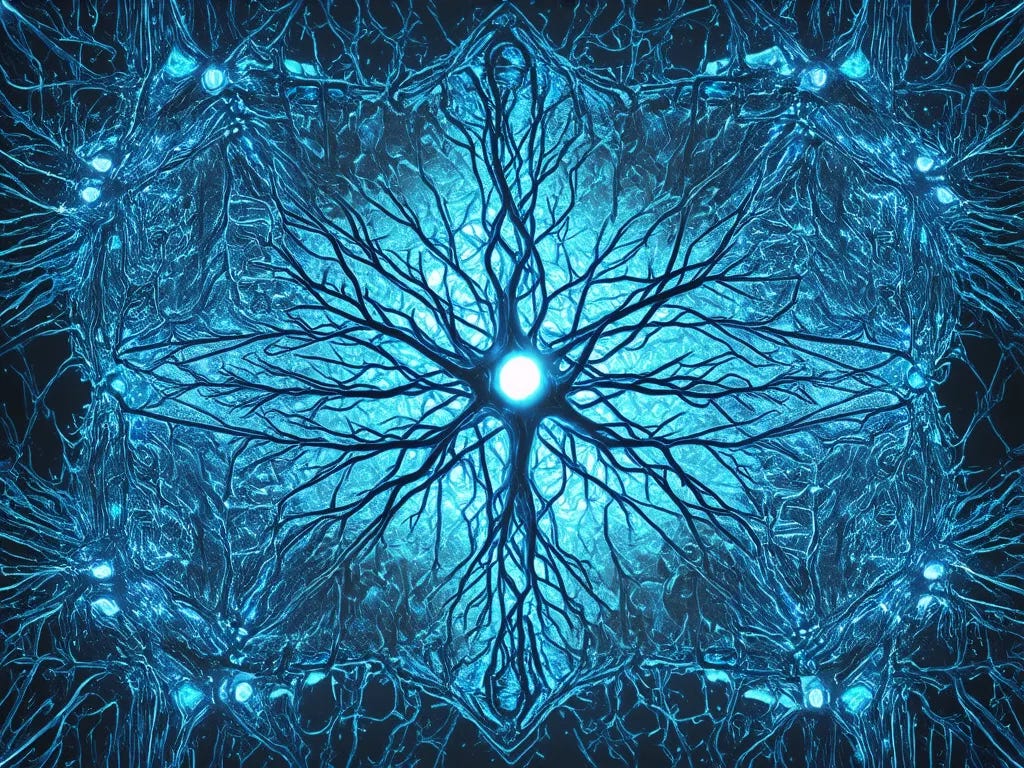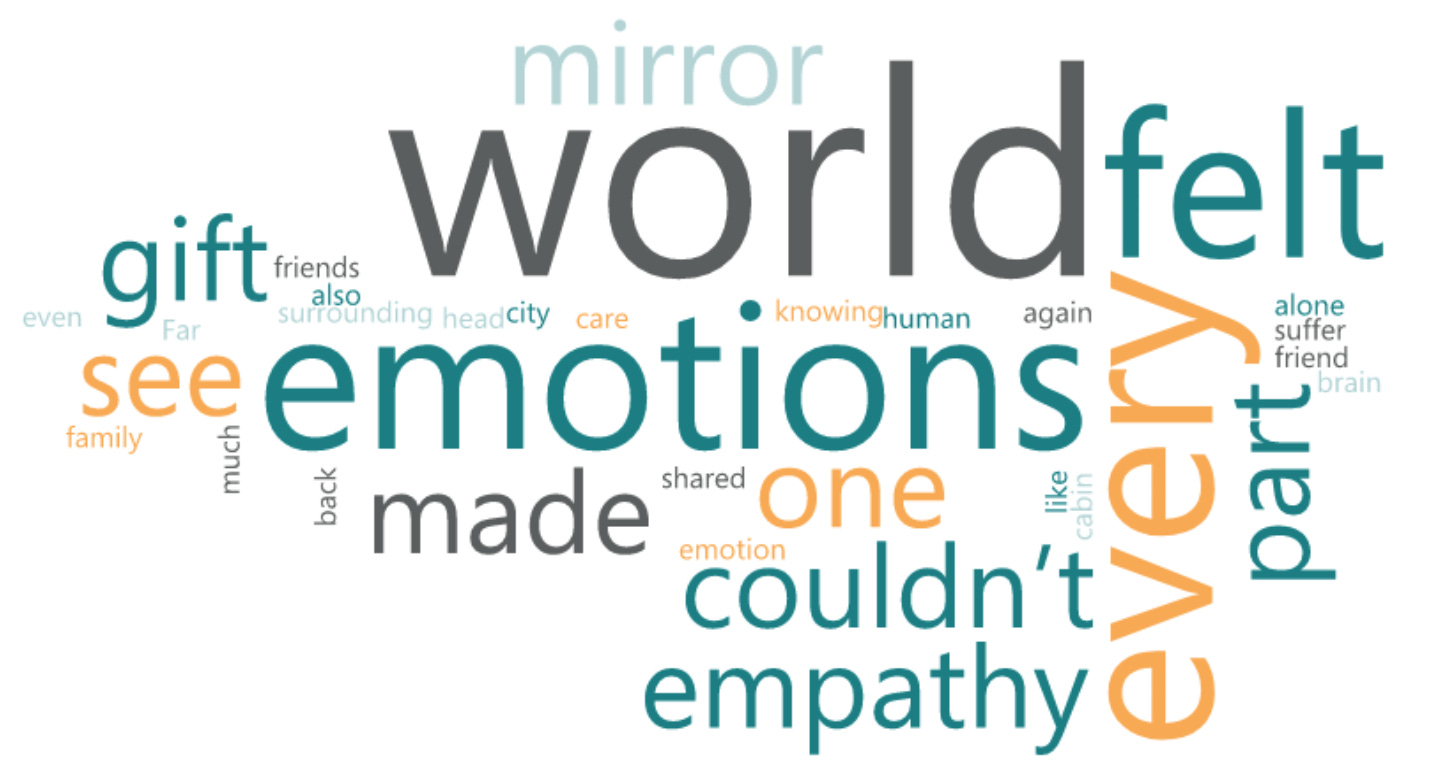The Empath's Resurrection
How effective is 'There & Back Again' in distinguishing suffering from success?
I have a distinct memory of standing in a school playground, aged nine or ten, watching older children practice high-jumping. There was no crashmat on the desert gravel, and they were using an older ‘scissors’ technique. I was so engrossed in watching them, working out how to imitate them, urging my own body over the bar, that my right leg lifted off the ground in synchrony with whomever was jumping.
(I did eventually compete in a few senior school high-jump competitions with a lowly PB of 1.83m, but I didn’t spot anyone imitating me. Them copying the Fosbury flop without a crashmat would have likely resulted in some injuries – and a few searching questions…)
The reasons why my body acted in this mostly subconscious manner are several. Mirror neurons are one key part of the explanation. These nerve cells fire both when a person performs a movement or when they observe the same movement in another person or animal. They are thought to play a role in motor learning, understanding actions, empathy, language and memory.

It seems likely that physical disease affects the activity of mirror neurons much like the rest of the brain. There is some evidence that mirror neurons are involved in neurodegenerative disorders, such as Parkinson's and Alzheimer’s disease, and frontotemporal dementia. These disorders affect brain regions that contain mirror neurons, and may impair cognitive functions which depend on them.
But I’m more interested in the reverse: Can mirror neuron activity cause physical disease? It would be fascinating if so. Take stigmata, for example. Or the strange mass hysteria/psychoses which can sweep through a school. I can’t yet find any direct evidence, but it’s an active research area, with studies in progress to clarify if such a causal relationship exists.
If I were a scientist, any premature speculation would eventually require credible supporting evidence. But as a creative writer I have no such constraints, hence the 700-word slice of flash fiction below, which gushed out of me in a flood of empathy.
Until next time…
A Flood of Empathy
Sensitive to other people’s emotions, he not only saw and heard but also felt their joys and sorrows, their anger and fears. More than a mirror to reflect what he perceived, he absorbed their pains and pleasures, their rising stresses and their soothing calm and made them his. For he was The Empath, in possession of a marvellous talent for which he was lauded. His birth was a blessing, his existence a benefit to humanity. His sole purpose was obvious to all: to spread compassion and kindness – even if he didn’t want to.
Far more than empathy, his tuned network involuntarily replicated every positive or negative emotion emanating from both family and friends. If his mother had a headache, he felt it. If his friend had a panic attack, he felt it too. If his brother suffered a broken heart, then his also threatened to fracture. They could only see his shared laughter and tears, not every one of their hopes and fears being matched within his own head.
He didn’t see his unique ability as a gift. He couldn’t switch it off, even in his sleep. His mirror neurons, the brain cells that allowed him to empathise, were too active. Sucking in every surrounding emotion and replicating them within his head was to both soar like an eagle and suffer like a prisoner. A crowd of victorious supporters might be ecstasy, but a funeral procession was agony. A theatre or a cinema was unbearable. To move through a city risked a dizzying descent into unchecked emotional turmoil and mental chaos.
He tried to cope with it, to care for himself as much as he helped others. There was medication, meditation and visits to eager, intrigued therapists. He learned to set boundaries, to say no, to take care of his own needs. But nothing seemed to work. His empathy was too strong, too overwhelming, too exhausting. No-one should suffer the terrible pressure of always knowing the world’s feelings. It was impossible to be blind and deaf to every friend and loved one, no matter how much he screamed ‘let me out’ on the inside, sure in the knowledge only he could hear his cries.
Instead of sitting on a fence, fending off a growing threat of insanity, he chose to hide away from the world. Moving to a secluded cabin in the woods, far from any human contact, he cut off all communication with relatives and acquaintances, telling them he was desperate for some time alone. He hoped they’d understand and forgive him, despite him knowing they felt no guilt. His gift couldn’t be shared. The jealousy he was sometimes forced to ingest, a reflection of the ignorance surrounding the part he was forced to play, was a price he alone paid.
So he lived a simple life, immersing himself into a more natural world. Reading books, listening to music, painting pictures; his own emotions flowed from a self-pierced dam, a torrent of blissful release tumbling into a world empty of other humans’ emotions. He was at peace and free for a long while.
Then the pangs of loneliness began, made worse by the starved mirror in his brain. The pangs were fanned by his empathetic roots and grew into abject longing. He missed his family, he needed his friends – their voices, their faces, their hugs. He missed being part of something bigger than himself.
He realised he’d made a mistake. He missed being human and couldn’t live without expressing his mirrored empathy. Any justification of his existence depended on it. He needed to face the world once again.
He packed his bags, locked his cabin and drove back to the city, calling everyone he knew to tell them he was sorry and that he wanted to see them again. He hoped they would understand and forgive him. When he met them, in ones and twos, he eased himself back into their emotions until their lives were once more part of his own. Altruism demanded it and his resurrection achieved it: a return to humanity less painful for him and the world than denying people his gift. He needed to be alive and transcendent – for everyone’s sake.



That's a really good little exploration of what would actually happen to an empath like that. And in only 700 words. Nicely done.
Seeing as I'm a big fan of neuroscience, I understand where you're coming from here and I think I would agree with your hypothesis about mirror neurons having the potential to create contagion. And there's definitely a story in there. Maybe with a non-human species (or newly evolved branch of the species) having vastly more mirror neurons which are perhaps overexpressed and always firing off. They'd need to learn to control that and shut off the voices. I'd think Superman would have the same issues most likely. Hmm, Supe as a schizophrenic. Now that's worth a fanfic.
Then there's Munchausen-by-proxy of course. How 'projection' can provoke or trigger such mirror neurons.
1.83 is a great PB for the high jump. (How tall are you, btw?). You're about 3 cm better than our Katrina, who was able to jump 10cm higher than her own height.
As for me, don't even ask...